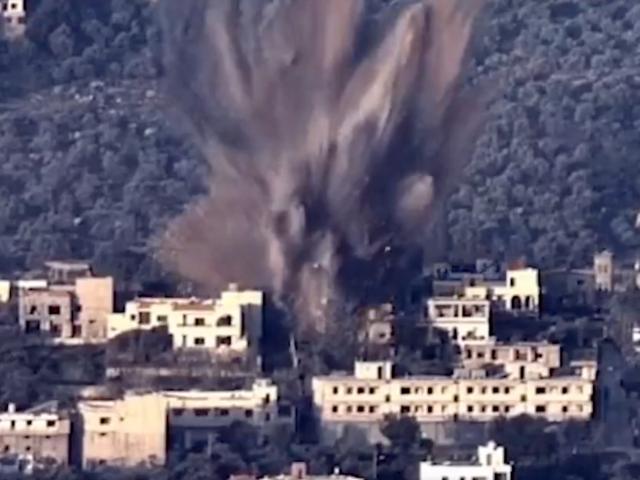France has recently taken a proactive step towards quelling the simmering hostilities along the Lebanon-Israel border by presenting a comprehensive proposal aimed at halting the ongoing skirmishes involving the Iran-supported Hezbollah and Israeli forces. This initiative emerges amidst the broader conflict enveloping Gaza, raising alarms over the potential for a devastating, full-scale war.
The proposition, which marks the first concrete written suggestion during weeks of Western diplomatic interventions, was handed over to Lebanon's senior officials, including Prime Minister Najib Mikati, by French Foreign Minister Stephane Sejourne. This diplomatic overture underscores a concerted effort to forestall a conflict that could rapidly escalate beyond control. It seeks not only to institute a ceasefire under conducive conditions but also paves the way for substantive negotiations concerning the contentious land demarcation between Lebanon and Israel.
'On paper, this is a wonderful proposal in reality, this is an impossible proposal'@JerusalemCenter's Dr. Jacques Neriah examines reports that a France proposal would see #Hezbollah retreat miles away from the border with Israel, imposed by the Lebanese army pic.twitter.com/4VRooVZ7Pp
— i24NEWS English (@i24NEWS_EN) February 13, 2024
Despite the gravity of the proposal, Hezbollah has signaled its unwillingness to engage in formal talks on de-escalation until the conflict in Gaza is resolved. This stance was reaffirmed by a Hezbollah politician, highlighting the complexities underlying the situation.
The French proposal delineates a three-phase de-escalation process spanning 10 days, concluding with discussions on border demarcation. It has been presented to the governments of Israel, Lebanon, and Hezbollah, reflecting France's historical connection with Lebanon and its vested interest in the region's stability, underscored by the presence of French citizens and troops within the UN peacekeeping force in Lebanon.
🔊 France has proposed a Hezbollah withdrawal and a truce on the Israel-Lebanon border. How feasible is it? Listen to @GebeilyM on the Reuters World News daily podcast https://t.co/yPFwTkoVO5 pic.twitter.com/1UKa1pLT4z
— Reuters (@Reuters) February 13, 2024
The plan advocates for an immediate cessation of military operations, including Israeli airstrikes on Lebanon, and mandates the dismantling of military installations near the border by Lebanese armed factions. Significantly, it requires the withdrawal of combat forces, including Hezbollah's elite Radwan unit and heavy weaponry, to a distance of at least 10 kilometers north of the border. This stipulation represents a compromise, likely more acceptable to Hezbollah than a complete retreat to the Litani River, as previously mandated by a UN resolution following the 2006 conflict.
Furthermore, the proposal envisages deploying up to 15,000 Lebanese army troops in the south, a region traditionally under Hezbollah's influence, to maintain peace and stability. Yet, Hezbollah's outright rejection to discuss any measures prior to the cessation of hostilities in Gaza, coupled with the Lebanese government's cautious stance towards the proposal's specifics, underscores the intricate balancing act required to navigate the proposal's acceptance.
🇫🇷🇮🇱🇱🇧⚡ France proposes Hezbollah withdrawal, border talks for Israel-Lebanon truce
— War Watch (@WarWatchs) February 12, 2024
The written proposal to Beirut included calls for fighters, including Hezbollah's elite unit, to withdraw 10 km (6 miles) from the border. pic.twitter.com/JwzOT24I4j
The international community, including the United States, remains engaged in exploring diplomatic avenues to restore calm and prevent further escalation. The intricacies of the proposal, including its potential impacts on Hezbollah's military posture and the broader security dynamics of the region, highlight the challenges facing Lebanon, Israel, and their international partners in achieving a sustainable peace.
As discussions unfold, the proposal's success will hinge not only on the willingness of the involved parties to compromise but also on the broader regional context, including the war in Gaza and the internal political and economic challenges facing Lebanon. The international community's role in supporting Lebanon, particularly in strengthening its armed forces and fostering socio-economic development in the south, will be pivotal in ensuring the proposal's objectives are met, paving the way for a lasting resolution to a longstanding conflict.


